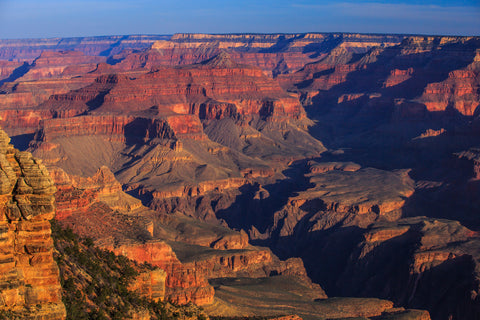
Making Your World Memorable!
When I run Dungeons & Dragons, I typically play in my own homebrew setting that I have built over the past decade. I prefer to tell stories in a world I made up because I love being an expert on the world that my players are adventuring in. I want to have all the answers when they ask questions, and ask questions they will! There is A LOT to remember about a world (even for a Dungeon Master)! Mountain ranges, rivers, nations, kingdoms, countries, shops, and taverns all have names, and the NPCs and players characters who populate the world living their fictional lives there ought to know them! But while I'm an expert on my world, my players aren't’... And even I, the “expert,” has trouble keeping up with all of it! Maybe the reason we struggle to remember the names of these places is because the names of these places aren't memorable…

So what can we do to help get our players invested in the map? How can we easily remember the names of the things we create, making these locations stand out against all the others not only to our players but to us as Dungeon Masters as well? Here are a few quick tips to help answer those questions, with supporting examples from fiction and real-world locales!
Physical Characteristics
When you're trying to give a location a memorable name, it's best to associate it with something that's familiar to the players: something that they understand and recognize. When it is mentioned, it should instantly bring this place and something about it to mind! Describing and naming a place in the same breath will help solidify the location in the fiction and in the minds of the people around the table!
Start by naming a place after its memorable physical features. If the name of a place describes what the players see when they get there, they’re more likely to remember the physical features that make this place distinct AND the name of the location. Imagine driving to the “Grand Canyon” or the “Great Wall” of China and managing to forget what those places were called! Other real world locations like "Little Rock," "Salt Lake," and "Green Bay" were named based on this principle. Landmarks, towns, cities, and even taverns can be named in this way. Pick something that makes the place unique, and name the place after that feature!

Popular D&D settings use this trope a lot, as do popular writers like J. R. R. Tolkien! You certainly recognize and remember places like "The Black Gate, the "Misty Mountains," and the "Lonely Mountain!" "Metropolis" from DC Comics follows this same convention, as does "Waterdeep" from D&D's Sword Coast.
You can also take the opposite approach, naming things ironically by naming places after things that are clearly untrue about them. For example, you could name a frigid tundra “Greenland,” or a verdant island “Iceland,” or a chilly northern city “Neverwinter.”
Geography
You should also try naming things after their geographic placement on the map! This has been by far the most successful tactic at my tables for helping my players remember features of my map! “Northshore” is a long narrow country following the northern seaboard of the main continent. Southmarch is an enormous plain to the south. Centra is, as you may guess, a big city in the middle of everything! These place names are very memorable, not only to me, but to my players as well! Other examples of this trick include “Westeros,” North and South Carolina, West Virginia, or the Middle East. All these areas are described by their relative position on the map!

Mood
Detailing places by their personality also works! Take for example “Port Providence,” a very successful mercantile harbor, or “Bleakhaven,” a single hamlet of safety within an otherwise very dangerous land. “The Savage Wilds” is and untamable wilderness beyond civilization… I could go on. Naming places in this way kind of gives you a clear impression of what you're in for if you were to go to one of these places. You get what’s on the tin!
Other examples include the aspirational name of “Philadelphia” (the City of Brotherly Love), or “Sleepy Hollow.” "Lazy River" and "Misery" (yes, that's a town in Maine) are other great examples!
Inhabitants & Wildlife
You can also always name things after the local flora and fauna, as well! “Triplet Pines,” “Misty Oaks,” “Beaver Dam,” and the “Iron Mountains” give you an immediate sense of what's around these locations when you think them. While “Ravenloft” got its name for other reasons, it is still a great name for a place where you can find a lot of ravens! “Elm Street” probably has a lot of elm trees on that street (nightmares notwithstanding), and “Hartford” probably got its name for a low point in the river where deer used to cross (hart being an old-timey word for deer).

If there's a distinct bestial bias in an area or if it is home to a particular species of humanoid, you can always name the location after its inhabitants. This has special precedence in works of fiction, where a wide variety of fantastic creatures dwell. Take “Hobbiton,” “Alfheim,” the “Dwarf Holds of the North,” or “Dragonspire Peak” as examples.
Heroes & History
Another route to take when trying to create memorable location names is to weave it into the lore and history of the world. Associate places with historic events or prominent figures or elements of regional culture or religion by naming them after significant things that happened there in their history. As an example from my homebrew world, “Stonesthrow” is the name for a human settlement that is so close to the mountains where stone giants used to live that the giants would throw enormous boulders at their little twiggy wooden town in an effort to drive them off. So the people that settled there cut those boulders, shaped them, and build a stronger fortress for themselves and named it Stonesthrow! Hart’s End is a location in Blackreach named when Hrodbert Dom Monarh, the local lord, was hunting the white stag. He shot it and chased it for days as it fled from him, eventually expiring at the location where Hrodbert set up shop, naming the site after titular hart’s demise. Further examples are “King's Landing” where once the king landed, “Oxford” where cattle would ford the river, or “New York” because old York just wasn't cutting it anymore…

Better yet, name places after gods or nobility or heroes significant in the region! Deim Hythe is named after the god Deimus in my setting. It's a big port city that honors him and values the things that he values (money, trade, and labor). We do this ALL THE TIME in the real world: “Alexandria,” “Constantinople,” “Virginia,” “Maryland,” “Raleigh,” “Lincoln,” “Jacksonville,” “Washington D. C.,” and “Columbus” to name a few! We are constantly honoring people that are important to our history and civilization in the way that we name places. This approach is my personal favorite because it adds to your worldbuilding! When your players think about the names of these locations they will also be remembering other aspects of the culture and history of the setting! It makes your player characters care about the world. When they're from a place that was named after a guy, they probably care about that guy at least a little bit (whether or not they like them is irrelevant)!
Synonyms
If, after exhausting these tips, you're still struggling to find that perfect name for someplace in your setting, I can't recommend a thesaurus strongly enough! Take a word that either describes the place or has something to do with its history and find its synonyms. Pick one of them, especially a word that sounds archaic and sophisticated, and use that word in its place!
Delegate
Finally, if your players are struggling to remember the names of locations in your world, you can always let them name stuff! In my setting, the “Sabine Desert,” the town of “Bleakwatch,” and the “Dogwood Blossom Inn” were all named by some of my players! They are WAY less likely to forget something that they came up with themselves!

Conclusion
Eschewing the random associations of letters and syllables that look and sound “fantasy-y” in favor of tangible, relatable location names will pay off big dividends for you in your games! What are some of the most successful tactics you've encountered or come up with to help people in your group remember bits of your world? What has (or hasn’t) worked for you? Drop us a message on our socials by clicking HERE!

Rob Franklin (@thedndwannabe) has been a Dungeon Master for many years, and has a deep passion for roleplaying games. He runs the MistyMountainStreaming channel on Twitch, our Misty Mountain Gaming YouTube channel, and is cohost of the Bardic Twinspiration D&D podcast. He also enjoys bourbon, From Software games, and his dog Bigby.


